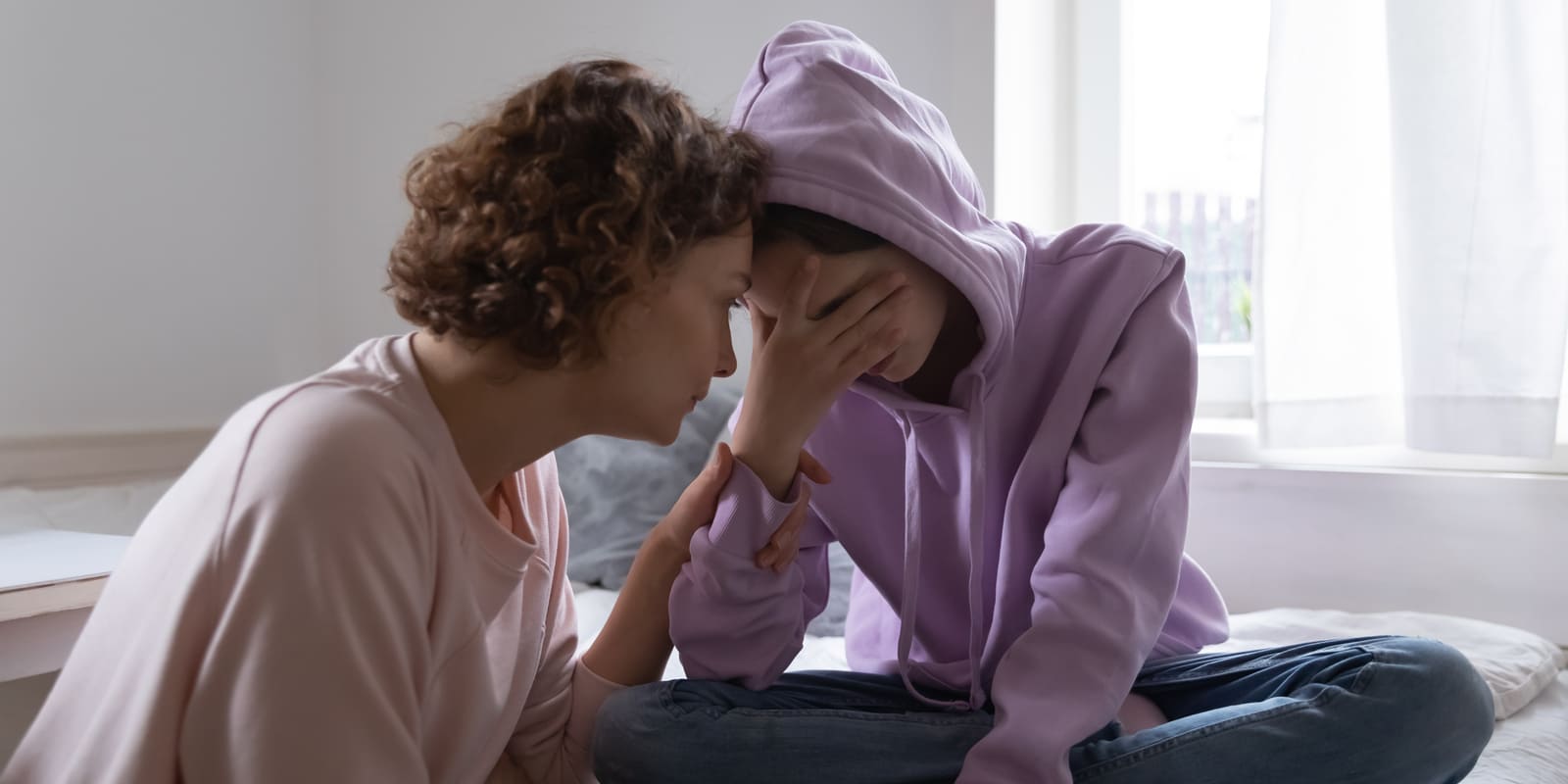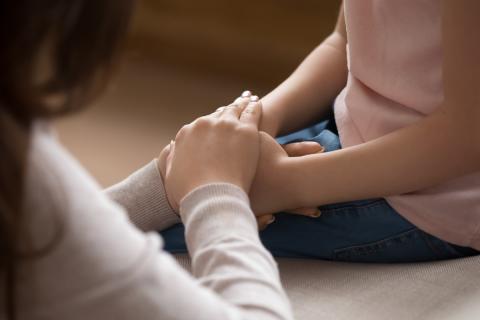Watching your child or a child or young person that you care for develop and grow into their own person brings its own challenges without the added worry of child sexual abuse and exploitation. But by knowing the potential signs of child sexual abuse and exploitation, talking to your child and getting help and support if you are in any way concerned, you can go a long way to protecting your child. Not only in the here and now, but potentially for the rest of their lives to come.
Building a positive relationship
The more time you spend talking to your child or the child you care for about their day to day life, the easier it’ll be for them to open up to you about friends, relationships and what they get up to at school, online and when they’re out and about. This means you’ll be more likely to spot any signs that their behaviour is changing.
Our page on parenting a teen has more advice on building a positive relationship with your child.
Signs of child sexual exploitation
Taken in isolation, any one of the following could simply be signs that your child is growing up and becoming more independent. But if you’re concerned, it’s best to find out more. Trust your instincts: if something doesn’t feel right, don’t be afraid to intervene.
You can find tips for talking to your child about child sexual exploitation here and on the Upstream website.
Are they suffering severe mood swings?
Mood swings in themselves are nothing unusual but does gut instinct tell you the ones your child is experiencing are something different entirely? Many parents of sexually abused or exploited children report that their child appears to have developed a completely different personality.
Have they become unusually secretive?
Has your child stopped talking about their day at school or where they’ve been and who with?
Are they acting differently when they access the internet?
Has your child started becoming overly protective of their phone, tablet or computer, as if they don’t want you to see who’s contacting or messaging them? Alternatively, are they avoiding their phone or laptop altogether as if they’re scared to hear from someone?
Is your child late home, skipping school or running away?
Has your child started coming home later than they were supposed to or even staying out overnight with no notice? Have they been skipping classes or missing school altogether, or running away from home?
Is your child in possession of new things?
These could be things like new clothes, mobile phones or jewellery that you didn’t buy them and that you know they don’t have the money to buy themselves.
Have their tastes or language changed suddenly?
Is your child dressing differently – in a more revealing way perhaps? Have they started listening to a new style of music? Or swapped one friend or group of friends for another? Have they started using new words for body parts, and you don’t know where this is coming from?
Do they have unexplained marks and scars?
Have you noticed your child trying to conceal unexplained marks and scars by covering themselves up or wearing loose clothing? When you ask about them, do they avoid giving you a clear answer?
Are they going back to younger behaviours?
Has your child started wetting the bed again, having nightmares or having difficulty sleeping? Or have they become more clingy, like a younger child?
Have their eating habits changed?
Have they become very picky about their food, or stopped eating? Or have they started eating too much, as if they’re comfort eating?
Are they being picked up or dropped off by people you don’t know?
Abusers may groom young people by offering to give them lifts.
Are they drinking or taking drugs on a regular basis?
Abusers may introduce children and young people to drugs and alcohol as a way of controlling them and creating dependency.
Taking action
You can find out more about spotting the signs of abuse on the Children First website. If you spot something that worries you, in your child’s behaviour or the behaviour of a child you know, don’t ignore it. Our page on reporting concerns explains what to do if you’re worried.
 Activities & Play
Activities & Play Behaviour
Behaviour Childcare
Childcare Development & Growing Up
Development & Growing Up Family, Friends & Relationships
Family, Friends & Relationships Feeding Your Baby
Feeding Your Baby Food & Eating
Food & Eating Health & Safety
Health & Safety Mental Health & Wellbeing
Mental Health & Wellbeing Money & Work
Money & Work Online Behaviour & Safety
Online Behaviour & Safety Pregnancy & First Days
Pregnancy & First Days School & Education
School & Education Sleep
Sleep










 School & Education
School & Education
 Mental Health & Wellbeing
Mental Health & Wellbeing